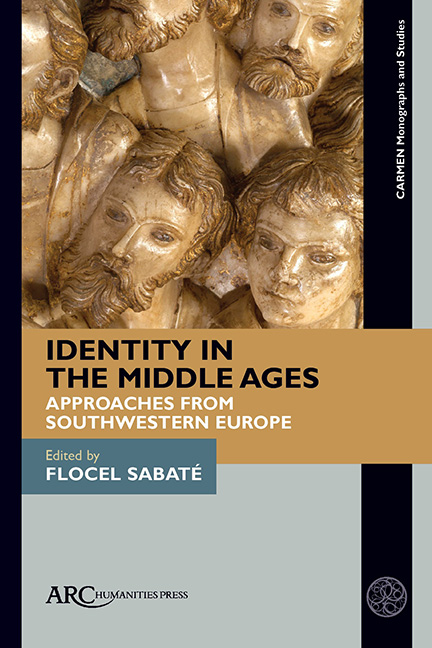Book contents
Chapter 2 - Baptismal Names and Identity in the Early Middle Ages
Published online by Cambridge University Press: 20 January 2022
Summary
ONE'S NAME is no doubt the most important means of identification a person has. And as any sign of cultural and social identity, it is open to different perception and interpretation. What is natural and self-evident for a person belonging to one culture may be totally incomprehensible to someone looking at it from the “outside.” This is true even of closely related cultures. For example, many Christians not belonging to the Hispanic world are taken aback when meeting someone called Jesus. Perhaps the same way that Spaniards react to the name Christo, very popular in Bulgaria. In both cases we are dealing with rather recent onomastic developments characteristic of the Modern period. There are reasons to believe that medieval Spaniards and Bulgarians would have dismissed the very possibility of such Christian names.
But what is a Christian name? Strange as it may seem this is a complicated question, and different Christian communities in different times give very different answers. When asked about it today most people would probably say it is the name of a saint or of a revered character of the Bible, while some might disagree and insist that any name belonging to and meaningful in the Christian culture (such as Angel, Noel, Toussaint, Trinidad, or, let's say, Chantal and Montserrat) is in fact a Christian name; still others would claim that practically any name could be Christian. Simplifying this problem to some extent, these three approaches are characteristic, respectively, of Orthodox, Catholic, and Protestant (especially Anglo-Saxon Protestant) traditions. Oddly enough this question has not been studied sufficiently, either by specialists in historical onomastics, or by historians of religion, mainly—as one can guess—because research into baptismal names is usually conducted in the frame of cultural traditions of a particular Christian community, without due attention to the ways and ideas of other Christians. With all my admiration and gratitude for the wonderful books and articles cited here, I should say plainly that most authors do not recognize the problem itself, let alone study it.
Baptismal Names and Liturgy
In the long run, the difference in the perception of the Christian name is explained by different liturgical customs common to the three traditions mentioned above. Limiting my study to the Middle Ages, I discuss only the Orthodox and the Catholic customs.
- Type
- Chapter
- Information
- Identity in the Middle AgesApproaches from Southwestern Europe, pp. 67 - 112Publisher: Amsterdam University PressPrint publication year: 2021

